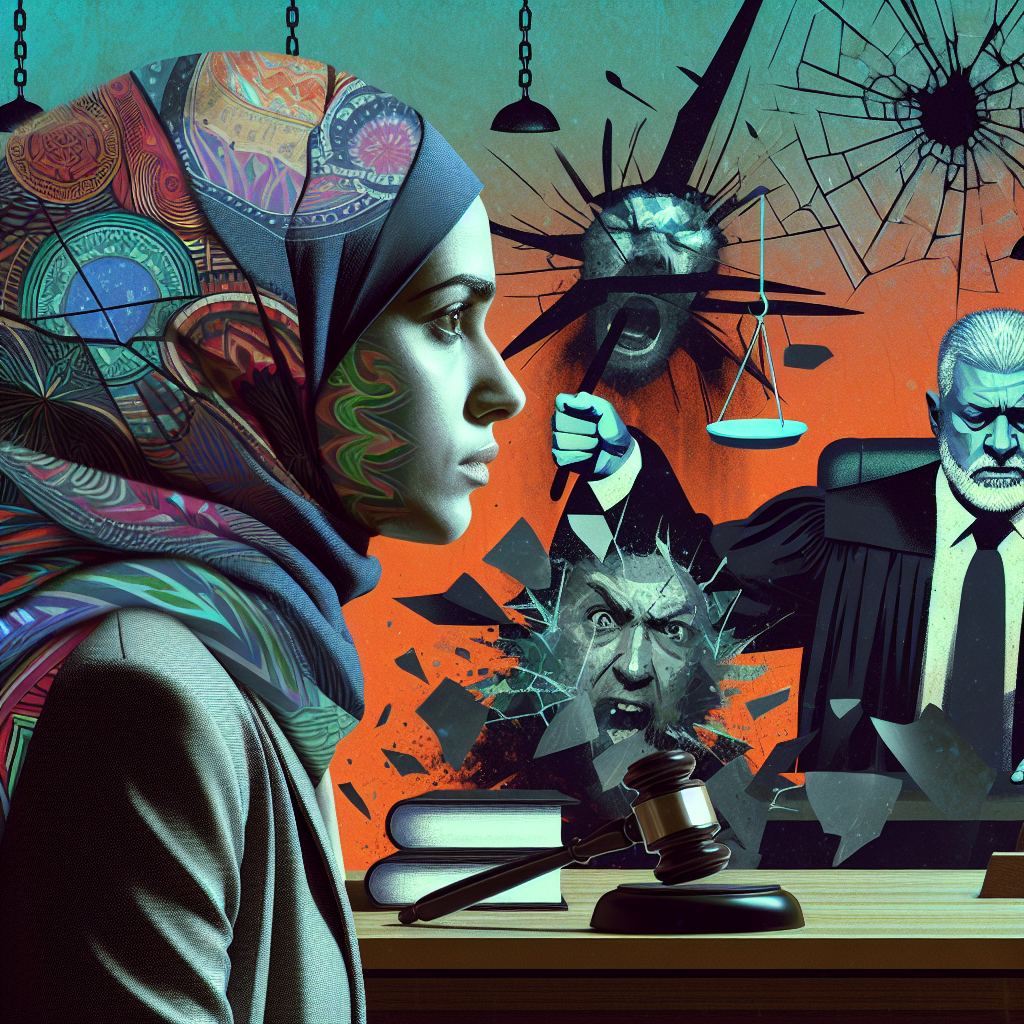Introduction
Imagine standing in a courtroom, your heart racing, trying to recall a traumatic event that haunts your every conscious moment. This scenario is a harsh reality for many witnesses suffering from Post-Traumatic Stress Disorder (PTSD). As society increasingly recognizes the profound impacts of trauma, understanding how PTSD influences witness credibility has become essential in judicial processes. In this article, we delve deeply into the intricate relationship between trauma and testimony, exploring the nuances of how PTSD affects perceptions of credibility in court.
Understanding PTSD: A Primer
What is PTSD?
Post-Traumatic Stress Disorder emerges after experiencing or witnessing a traumatic event. The symptoms can vary widely but generally include flashbacks, anxiety, emotional numbing, and difficulty concentrating. These symptoms can be debilitating, particularly in high-pressure situations like courtrooms.
The Symptoms That Impact Testimony
The symptoms of PTSD can severely affect a witness’s ability to recall events accurately. Common symptoms include:
- Flashbacks: Re-experiencing trauma can lead to distorted memory retrieval.
- Hyperarousal: Heightened alertness can create an inability to focus on the task at hand.
- Avoidance behaviors: The witness may have trouble discussing the event, affecting their testimony.
Trauma and Memory
The Science of Memory Formation
While much research has been done on memory in general, trauma significantly alters how memories are formed and recalled. Trauma can hinder the ability to store new information and retrieve old memories, affecting how witnesses present their facts in a courtroom setting.
Memory Encoding and Retrieval
PTSD can impact both the encoding and retrieval of memories. Traumatic events may be encoded in a fragmented manner, making accurate recall exceedingly difficult.
Case Study: The Challenger Disaster
In examining memory distortion under trauma, the Challenger Disaster serves as a poignant example. Witnesses to the tragic event often reported conflicting memories, affecting their credibility. Such disparities exemplify how trauma influences memory and, consequently, witness testimony.
Witness Credibility: Legal Perspectives
The Importance of Credibility in Court
In judicial proceedings, witness credibility is paramount. Jurors often base their judgments on how trustworthy and reliable a witness appears. When witnesses suffer from PTSD, their credibility can be unfairly questioned.
Legal Standards for Witness Testimony
Courts often utilize the "Frye Standard" and "Daubert Standard" to determine whether testimony is admissible. These standards evaluate the relevance and reliability of evidence. PTSD complicates this evaluation because the emotional state of a witness might introduce biases affecting the jury’s perception.
Legal Precedents On PTSD’s Impact
Smith v. State (2005) is an essential case featuring a PTSD survivor. Courts acknowledged the complex interplay between trauma and testimony, underscoring the need for legal education around PTSD’s effects on reliability.
Improving Legal Outcomes for PTSD Survivors
Education for Legal Professionals
Understanding PTSD’s impact on memory and testimony is essential for legal professionals. Educating judges, attorneys, and jurors about the psychological effects of trauma can mitigate biases against witnesses suffering from PTSD.
Expert Witnesses: A Valuable Resource
Utilizing expert witnesses—psychologists or psychiatrists—can provide valuable insights into how trauma affects memory and testimony. Their input can help clarify the impact PTSD has had on the witness’s reliability.
Case Study: The Role of Expert Witnesses
In Doe v. State (2013), expert testimony on PTSD helped jurors understand the nuances of the claimant’s memory issues, which ultimately favored the victim’s credibility.
The Role of Emotional Intelligence in Courtrooms
Training for Legal Professionals
Training legal professionals in emotional intelligence can improve the courtroom environment. An empathetic approach can foster a more supportive setting for witnesses with PTSD.
Techniques to Encourage Accurate Testimony
Employing techniques such as:
- Open-ended questioning: This invites more comprehensive responses from witnesses.
- Building rapport: Establishing trust can lead to more accurate testimonies.
Analyzing Jury Perception
Psychological Impact on Jurors
The presence of PTSD and its effects can influence jury decision-making. Adverse perceptions of a witness suffering from trauma can lead to bias.
Case Study: Racial Bias in Jury Perception
In Holt v. Virginia (2008), racial bias influenced jurors’ interpretations of credible testimony from witnesses dealing with trauma. This case highlights the urgent need for awareness regarding biases linked to PTSD.
Strategies for Mitigating Bias
- Jury Instructions: Clear instructions about considering PTSD can help reduce bias.
- Diversity in Jury Selection: Creating a balanced jury can enhance the fairness of proceedings.
Conclusion
The journey from trauma to testimony is fraught with challenges, particularly for those grappling with PTSD. As we’ve explored, trauma significantly impacts the reliability and recollection of a witness’s testimony in court. The legal system must adapt by educating professionals, employing expert witnesses, and fostering empathetic environments to support traumatized individuals. Bridging this gap is not just beneficial—it’s essential for achieving justice.
FAQs
1. What is PTSD, and how does it affect witnesses in court?
PTSD is a mental health condition triggered by experiencing or witnessing a traumatic event. Its symptoms, including memory distortions and anxiety, can affect a witness’s ability to recall and relay accurate information in court.
2. Are there legal protections for witnesses suffering from PTSD?
Yes, some jurisdictions recognize the unique challenges faced by PTSD witnesses and may offer protections during testimony, such as private testimony or the use of therapy dogs.
3. How can jurors be educated about PTSD’s effects?
Jurors can be educated through introductory sessions, expert testimony, and clear guidelines on assessing credibility while considering trauma’s impact.
4. Can expert witnesses help in cases involving PTSD?
Absolutely. Expert witnesses can provide valuable insights into the psychological effects of PTSD, helping juries understand the implications for memory and testimony.
5. What strategies can legal professionals use to support witnesses with PTSD?
Legal professionals can encourage accurate testimony through open-ended questions, building trust, and providing emotional support to witnesses during their testimony.
Exploring the complexities of how trauma influences testimony is essential for ensuring fair legal proceedings that truly serve justice. Understanding and adapting to the challenges posed by PTSD can make courts more compassionate and equitable spaces.

